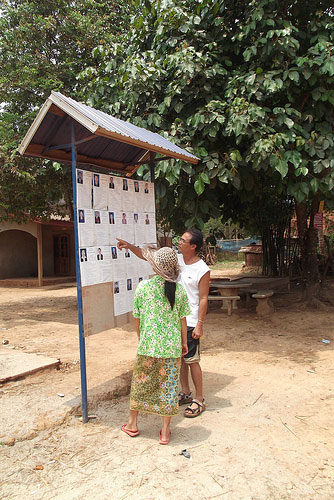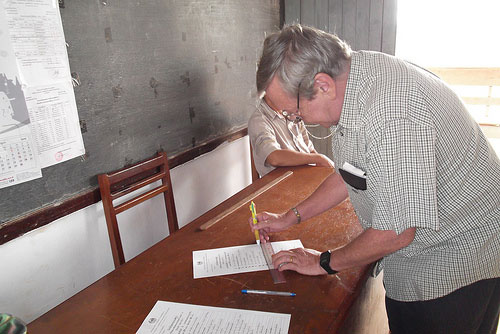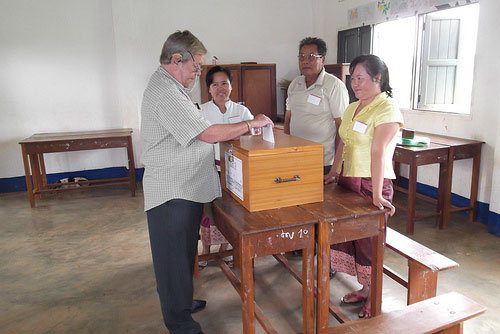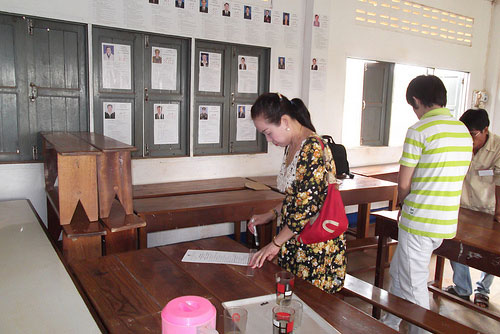Laos has just held its general election to the National Assembly (parliament).
Like several Arab countries which are also transitioning (but more chaotically), the resulting democracies are unlikely to be US-style democracies and some may not have multiple competing parties. But since no country has what could be called a fully democratic system and there are about as many varieties of voting systems as there are democracies, this should not necessarily be condemned. Remember that George Washington himself was strongly against the formation of political parties believing that representatives would put the interests of their parties above the interests of the country.
Laos has no competing political parties as such. However, there are competing individuals. For someone to stand for election, they do not necessarily have to be members of the Communist Party, but they do have to be nominated by one of several different organizations within the country, mainly the four mass organisations:
- Regional branches of the Lao Front for National Construction
- Regional branches of the Lao Women’s Union
- Regional Branches of the Lao Trades Unions
- Regional branches of the Lao Youth Organisation (despite the name, it’s a movement largely of adults)
The elected members of the National Assembly then select the members of the cabinet, the Prime Minister and President. It is possible that those four main mass organizations will eventually evolve into distinct political parties with differing platforms – something that I’ve been told is already happening to some extent. The Lao Women’s Union for example is not a peripheral powerless movement – it has substantial political power, cabinet members and at least one former deputy Prime Minister.
The candidates for the National Assembly have been campaigning in their districts and holding town hall meetings in the villages of their districts. The educational records and employment history of each candidate have been put up on noticeboards and published in the Lao and English newspapers. Surveying the lists of candidates in the various districts, one notes that they are entirely ‘public servants’, mostly with advanced education and many years in responsible positions in their communities. There are no celebrities or businesspeople, etc.
I took this photo last week of a notice displaying the details of candidates standing in the district where I live.

My permanent resident status in Laos allows me to vote in the General Election. The right extends to all men and women over the age of 18.

I voted for the Lao Women's Union candidates with the higher levels of education and several years of responsible public service and avoided those with military uniforms and chests full of medals.

My wife mainly selected younger candidates who had studied and worked outside of Laos.



 Pages: 1
Pages: 1
 Pages: 1
Pages: 1
 Home
Home




